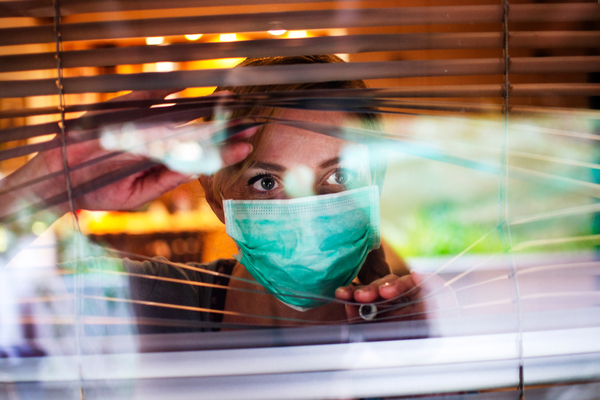A recent study revealed nearly half of adults in the nation experience some form of stress or anxiety regarding the idea of going back to pre-pandemic life as COVID-19 vaccines signal a return to some normalcy. The study from the American Psychological Association found that 49% of adults reported feeling uneasy about returning to in-person interactions when the coronavirus pandemic eventually ends.
Researchers conducted the online study between February 19 and 21, 2021, with 3,013 U.S. adults aged 18 or older. It did not provide an estimate of theoretical sampling error because “the sample is based on those who were invited and agreed to participate in research panels.” Out of the 654 respondents who already received the vaccine, 48% reported feelings of anxiety about returning to normal day-to-day interactions.
Eighty-two percent of adults say they never expected the pandemic would last for as long as it has, underscoring the notion that most people did not expect the pandemic to outlast 12 months of precautions and safety restrictions imposed due to the highly transmissible COVID-19 virus.
Since the onset of the pandemic, safety guidance has been offered by the Centers for Disease Control and Prevention. Some experts say the rules have trained populations to become hyper-aware of public behavior, such as maintaining six feet of distance between people. Ellen Hendriksen, a clinical psychologist and staffer at Boston University’s Center for Anxiety and Related Disorders, said in an interview with Elemental published on February 16, “By being housebound during the pandemic, we’ve been acting like we have severe social anxiety.”
“It’s for a good reason, of course, but it mimics avoidance, which feeds and waters social anxiety,” she added. Hendriksen, an author of a book about conquering social anxiety and a host of the Savvy Psychologist podcast, describes social anxiety as a fear someone believes that they have a “fatal flaw” and it will be revealed to the public, causing humiliation.
Symptoms include but are not limited to an urge to opt out of events, thinking about “mistakes” after conversations are over, worrying you’ll come across as boring, weird, or unlikable to people, or resorting to unhealthy coping strategies, like drinking, to get through an event or gathering.
According to 2,359 respondents who have not taken the vaccine, 46% said in general, they were not comfortable returning to life as they knew it before the pandemic. The study did not specify whether the participants who have not been vaccinated voluntarily chose not to take it or if they have yet to qualify.
—
Photo Credit: Pearl PhotoPix / Shutterstock.com
